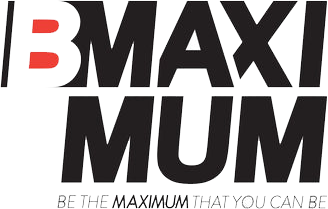
Introduction:
When it comes to supplements for enhancing muscle growth and athletic performance, few have gained as much popularity and recognition as creatine. This naturally occurring compound plays a crucial role in energy production within our muscles, leading to numerous benefits for those seeking to build muscle and improve their physical performance. In this article, we will delve deeper into the world of creatine, exploring its mechanisms, benefits, and optimal usage.
What is Creatine?
Creatine is a naturally synthesized compound that is primarily stored in our muscles. It is derived from amino acids, including arginine, glycine, and methionine. In our bodies, creatine is converted into phosphocreatine, a high-energy molecule that aids in the regeneration of adenosine triphosphate (ATP), the main energy currency for muscle contractions.
During high-intensity activities, such as weightlifting or sprinting, our muscles require rapid energy production to sustain powerful contractions. This is where phosphocreatine steps in as a valuable resource. Phosphocreatine donates a phosphate group to ADP (adenosine diphosphate), resulting in the reformation of ATP. This process allows ATP to be rapidly regenerated, ensuring a continuous supply of energy for muscle contractions.
By increasing the availability of phosphocreatine through creatine supplementation, individuals can enhance their muscle's capacity to generate ATP. This elevated ATP production supports optimal muscle function, enabling individuals to exert greater force, endure longer periods of intense exercise, and achieve higher levels of performance.
Moreover, the replenishment of ATP is not the only benefit of creatine. Its presence in muscle cells also attracts water, leading to cellular hydration and an increase in muscle volume. This effect, known as cell volumization, can contribute to the appearance of fuller, more robust muscles, enhancing the aesthetic aspect of muscle development.
How Does Creatine Support Muscle Building?
-
Increased ATP Production: By supplementing with creatine, you can elevate your muscle's phosphocreatine stores. This leads to a greater availability of phosphocreatine for ATP production during intense exercise, resulting in increased energy levels and enhanced performance.
-
Enhanced Strength and Power: Creatine has been shown to improve strength and power output, making it an invaluable tool for athletes and bodybuilders. With increased ATP availability, your muscles can generate more force and sustain high-intensity efforts for longer durations.
-
Muscle Growth and Hypertrophy: Creatine supplementation has been associated with greater muscle growth and hypertrophy. It promotes an environment conducive to muscle protein synthesis, enabling your muscles to repair, rebuild, and grow after intense workouts.
-
Delayed Fatigue and Improved Endurance: Creatine supplementation has been found to reduce fatigue and delay the onset of exhaustion during high-intensity exercises. By buffering the depletion of ATP, creatine helps you push through intense workouts and extend your endurance capacity.
-
Increased Water Content in Muscles: Creatine supplementation can cause an increase in water content within muscle cells, resulting in a fuller and more volumized appearance. This effect contributes to the aesthetic benefits sought by many individuals engaged in resistance training.
Optimal Usage and Dosage:
To reap the benefits of creatine supplementation, it is important to follow proper usage guidelines. Here are some key points to consider:
-
Loading Phase: Many individuals opt for a loading phase during the initial week of supplementation. This typically involves taking higher doses of creatine (around 20 grams per day) to saturate the muscles with creatine quickly. However, a loading phase is not mandatory, and some individuals prefer to start with a maintenance dose right away.
-
Maintenance Phase: Following the loading phase, a maintenance dose of 3-5 grams per day is recommended to keep the muscles' creatine stores elevated. This smaller dose is sufficient to maintain the benefits without overloading the system.
-
Timing and Duration: Creatine can be taken at any time of the day, although some individuals prefer to consume it around their workouts for optimal utilization. Creatine should be taken everyday, though, not just on training days. It is safe to use creatine for extended periods, and cycling off is not necessary but might offer some benefits. See our previous article which discusses taking creatine before or after your workout!
-
Hydration: Since creatine promotes water retention within the muscles, it is crucial to stay adequately hydrated by consuming plenty of fluids throughout the day.
Conclusion:
Creatine is a powerful supplement that has stood the test of time, demonstrating its effectiveness in promoting muscle growth, strength, and performance. By increasing ATP availability and supporting muscle protein synthesis, creatine provides athletes, bodybuilders, and fitness enthusiasts with an edge in their training endeavors. When used responsibly and in conjunction with proper nutrition and training, creatine can unlock new levels of athletic potential and help individuals reach their muscle-building goals.
There are many different types of creatine supplements available, but the most common form is creatine monohydrate. This form of creatine has been extensively studied and has been shown to be safe and effective for most people. B Maximum offers a high-quality, 100% pure creatine monohydrate at an excellent price for 400g.
Remember to consult with a healthcare professional or sports nutritionist before starting any new supplement regimen to ensure it aligns with your specific needs and goals.







